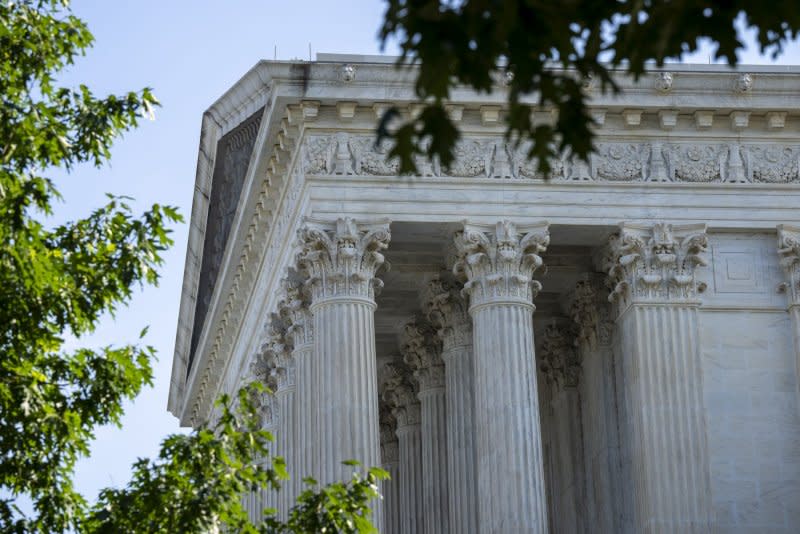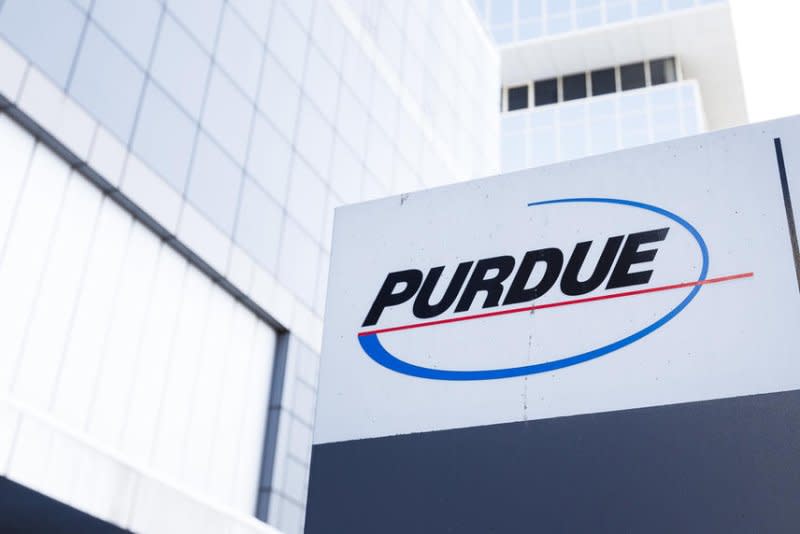Supreme Court temporarily blocks bankruptcy plans of OxyContin maker Purdue Pharma

Aug. 10 (UPI) -- The U.S. Supreme Court has temporarily blocked OxyContin maker Purdue Pharma from carrying on with its bankruptcy proceedings and said it will hear oral arguments in the case this December amid a circuit court split tied to the issue.
U.S. Solicitor General Elizabeth Prelogar, who is responsible for overseeing litigation involving the government, asked the high court to intervene in the case.
In her petition, Prelogar had noted that the Sackler family, the billionaire owners of Purdue Pharma who had controlled the company until recently, had withdrawn $11 billion while seeking to shield family members from liability.
The administration of President Joe Biden has called an arrangement reached between Purdue Pharma and the Sackler family "unprecedented." Officials had pushed for a halt to the bankruptcy reorganization of the opioid maker over objections to litigation releases that protect the controversial Sackler family.
The U.S. Appeals Court for the Second Circuit had determined in May that the Sacklers could be shielded from future opioid lawsuits as part of the bankruptcy plan.

Purdue Pharma and the Sackler family have largely been seen to share in the blame for the ongoing opioid epidemic in the United States. In recent years, the company pleaded guilty to criminal charges related to its marketing of the addictive painkiller and other crimes.
The company has faced a string of lawsuits dating back to the early 2000s related to OxyContin. The Sacklers agreed to a $6 billion settlement and agreed to give up ownership of the company in exchange for the litigation releases that absolve them from future liability.
But the concern over the litigation releases has caused a split between separate circuit courts. Bankruptcy proceedings normally shield companies from legal claims but do not normally extend that protection to the owners of the company.
The decision of the Second Circuit court to allow them in this case stands in contrast to bans imposed by the Fifth, Ninth and Tenth circuit courts. Such splits cause the type of uncertainty in the judicial system that would prompt the Supreme Court to weigh in.
"The parties are directed to brief and argue the following question: Whether the Bankruptcy Code authorizes a court to approve, as part of a plan of reorganization under Chapter 11 of the Bankruptcy Code, a release that extinguishes claims held by nondebtors against nondebtor third parties, without the claimants' consent," the Supreme Court wrote in its order granting the petition to hear the case.
"The clerk is directed to establish a briefing schedule that will allow the case to be argued in the December 2023 argument session. The stay shall terminate upon the sending down of the judgment of this Court."
There were no dissenting votes noted in the opinion.

